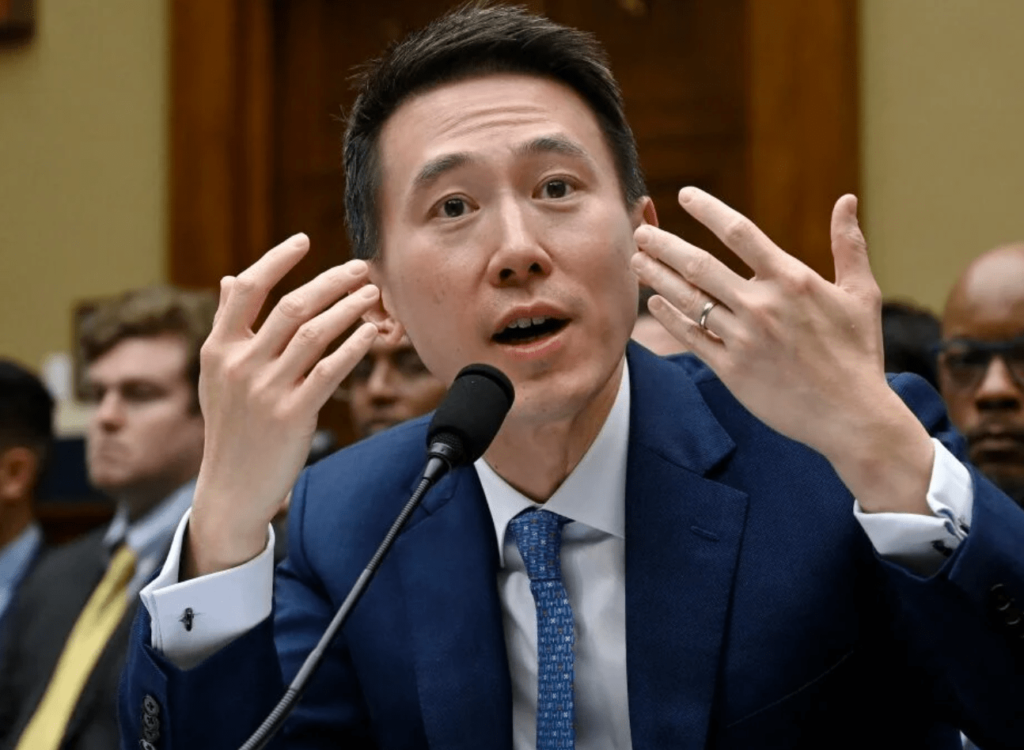“The Secretary [of Commerce] is authorized to and shall take action to identify, deter, disrupt, prevent, prohibit, investigate, or otherwise [mitigate] any risk arising from any covered transaction by any person, or with respect to any property, subject to the jurisdiction of the United States, that the Secretary determines poses an undue or unacceptable risk…to the national security of the United States or the safety of United States persons.”
Senate Bill 686, The “Restrict Act” (2023)

Does that sound like a TikTok ban to you? Me neither. That’s because it’s an excerpt from a bill that is so sweepingly broad that (if passed) it wouldn’t only give the U.S. federal government the ability to ban TikTok, it would give the U.S. federal government the ability to ban, dismantle, censor, or regulate any social media company, any conventional media company, any phone or internet service company, any messaging app, any web hosting company, and essentially any other tech company with at least 1 million users in the U.S. Here are just a few ways that the U.S. government could abuse this power, if it gets it:
- The federal government could force Google Chrome, Bing, or other browsers to censor political views that differ from their own by claiming such views were being promoted by SEO optimized content produced by China or Russia in an effort to affect U.S. elections.
- Democrats who dislike Elon Musk could claim his foreign investors make both Twitter and SpaceX’s StarLink national security threats. They could then force him to sell or shutdown those companies.
- Republicans who dislike transgender speech could claim Russian bots are promoting transgender speech on Facebook in order to corrupt American youth. They could use that as justification to shut down or dismantle Facebook, or force Facebook to censor transgender voices.
- The federal government could ban Bitcoin in the U.S. by claiming it was being used by Russia to bypass sanctions and therefore posed a national security risk. Using the same justification, the U.S. could require U.S. Ethereum stakers only validate transactions which come from people or businesses that are registered with the U.S. government and provide evidence of such registration with their transactions.
- VPNs could be banned in the U.S. because they allow users to access information that social media companies were required to censor under this act.
- Democrats could claim stories about Hunter Biden’s laptop are being promoted by Russian bots and use that as justification to censor stories about Hunter Biden on all social media platforms.
- Either Democrats or Republicans could claim that foreign bots are driving political misinformation about elections and use that as justification to censor particular viewpoints across all social media. They might even claim that bots are spreading misinformation via comments on millions of WordPress blogs and use that to force the WordPress developers to implement default filters to remove certain types of political comments from blogs.
- The U.S. government could ban AliExpress and Alibaba in the U.S. by claiming transactions on those sites were being used to fund foreign adversaries.
- Republicans who dislike identity politics could claim Reddit is being used by Russian bots to confuse American youth (hence posing a “safety risk to U.S. persons”) and use that as justification to force Reddit to censor posts and comments about gender identity.
The RESTRICT Act really is THAT sweepingly broad. Its scope includes “[any] transaction in which [a foreign adversary, an entity subject to the jurisdiction of or organized under the laws of a foreign adversary, or an entity owned, directed, or controlled by any of the previously mentioned entities] has any interest (including through an interest in a contract for the provision of the technology or service)… [and including any] current, past, or potential future transaction.”
Who exactly is a foreign adversary?
A foreign adversary is “any foreign government or regime, determined by the Secretary [of Commerce]… to have engaged in a long-term pattern or serious instances of conduct significantly adverse to the national security of the United States and safety of United States persons.”
In the recent Congressional hearing with TikTok’s CEO, it seemed that some politicians now believe “propaganda” is a national security risk. If that belief gains traction, then the RESTRICT Act could essentially be used to censor online media discussions from any political minority. That would not only make the U.S. a much less free country, it would significantly hurt the business reputation and opportunities in the U.S. It would make foreign companies less willing to provide tech goods and services to the U.S. and it would decrease the willingness of foreign investors to back U.S. startups. And in a worst case, it could even be used to ban entire industries such as the crypto industry from operating in the U.S.
What is the current status of the RESTRICT Act?
The RESTRICT Act was introduced in the Senate by Democratic Senator Mark Warner of Virginia. As of March 30, 2023, the bill has not yet passed the Senate or been taken to the House, but it has garnered bipartisan support from over 20 Senators from both sides of the aisle. It has also been publicly encouraged by President Biden.